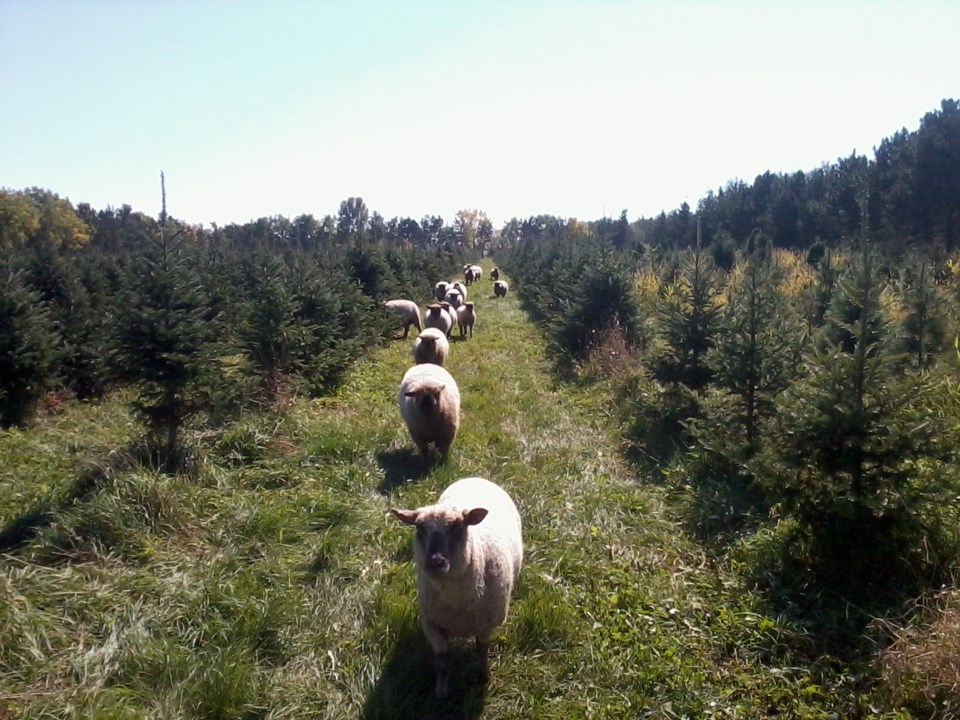YORKTON - Heritage breeds of livestock are part of Canada’s agricultural history.
Unlike a vintage tractor than can be stored away in a shed and protected for the future, livestock are living creatures which must be nurtured generation-to-generation to preserve the breeds.
That is where Heritage Livestock Canada plays a role as an organization promoting the preservation of heritage breeds.
Heritage Livestock Canada is the only Canadian charity, devoted to the conservation of heritage breeds, as defined by our conservation list in Canada.
“We do so through a mixture of education, promotion and practically assisting breeders on the ground. HLC holds a semen bank, consisting of cattle, sheep, swine and equine semen, which is available to our members. We exist through the support of our members, donations and fundraisers,” explained HLC chair Rebecca Lange.
Lange said maintaining rare breeds is important.
“I see rare breed preservation as important, as these breeds often have attributes which have been lost over time,” she said in an interview with Yorkton This Week via email. “They offer a genetic alternative to what are essentially monocultures and are often lower input in terms of feed - than what are seen as more conventional breeds. Whilst some breeds are more so a conservation effort, such as the White Park in Canada, they can also be utilized in commercial settings - White Park after all provided part of the basis of the Speckle Park breed.
“Red Poll, Lincoln Red and Red Devon bulls also offer good outcross genetics, whilst maintaining a good frame.
“There is also the cultural significance of heritage and rare breeds - these are often intertwined with human history - think of the wool from Cotswold for example being so highly prized, the money from their fleeces helped build iconic English Abbeys.”
The HLC is currently involved in a major initiative around sheep breed preservation.
“We try to focus on all species under our remit at Heritage Livestock Canada. Longwool breeds in particular are endangered globally - we set out to specifically assist breeders in Canada,” said Lange who raises Nubian goats, which are defined as a heritage breed.
“Populations outside their country of origin are seen as a form of insurance in the event of a disease outbreak. In particular because of the inability to be able to easily move new animals across borders, we looked at genetic diversity within breeds - many haven't seen the addition of new lines in a number of years - so we initiated this project.”
In the case of the project Lange said, “HLC is focusing on the breeds on our conservation list: Cotswold, Southdown, Shropshire, North Country Cheviot and Dorset Horn for the semen import.”
The breeds are generally critically rare in Canada.
“Yes, as part of this project we are focusing on the following breeds on our conservation list: Lincoln Longwool (which are extremely rare), Dorset Horn, Shropshire, Cotswold, Border Leicester, Leicester Longwool (this would mean a reintroduction to Canada), Southdown and North Country Cheviot,” said Lange.
“All of the above breeds are mentioned in texts particularly in the late 1800's and early 1900's.”
There are other breeds involved too.
“Whilst the Dutch Spotted, Nordwick and Wensleydale are rare breeds, theses don't meet the criteria on our conservation list. Heritage Sheep Reproduction however offers these breeds upon request,” said Lange.
The genetics will arrive in various forms.
“There is a mixture of semen coming in from the UK and live animals from the States,” said Lange.
Currently embryos are not permissible to come to Canada, however this may change.
“In particular the Border Leicester, Lincoln and Leicester Longwool will be coming in as live animals.”
The longwool is of particular importance.
“We are actively looking for producers with experience who are willing to help revive the Leicester Longwool in Canada,” said Lange.
Currently there are at least 10 breeders involved in these projects.
“However we are hoping to expand upon this, especially where the Shropshire and Dorset Horn are concerned,” said Lange. “Both have very few breeders left in Canada, specifically the number of those who are registering offspring is quite low.
“Without new breeders who are committed to continuing to preserve the lineages through paperwork, both could become ‘extinct’ in Canada.”
The project is significant in terms of breed preservation in Canada.
“The introduction of new genetics should help these breeds to be able to adequately continue into the future,” offered Lange. “There is certainly a growing market for wool and woolen products, with an appreciation of the natural qualities of each fleece. By helping those on the ground, it provides the stepping stone to be able to meet newfound demand.”

